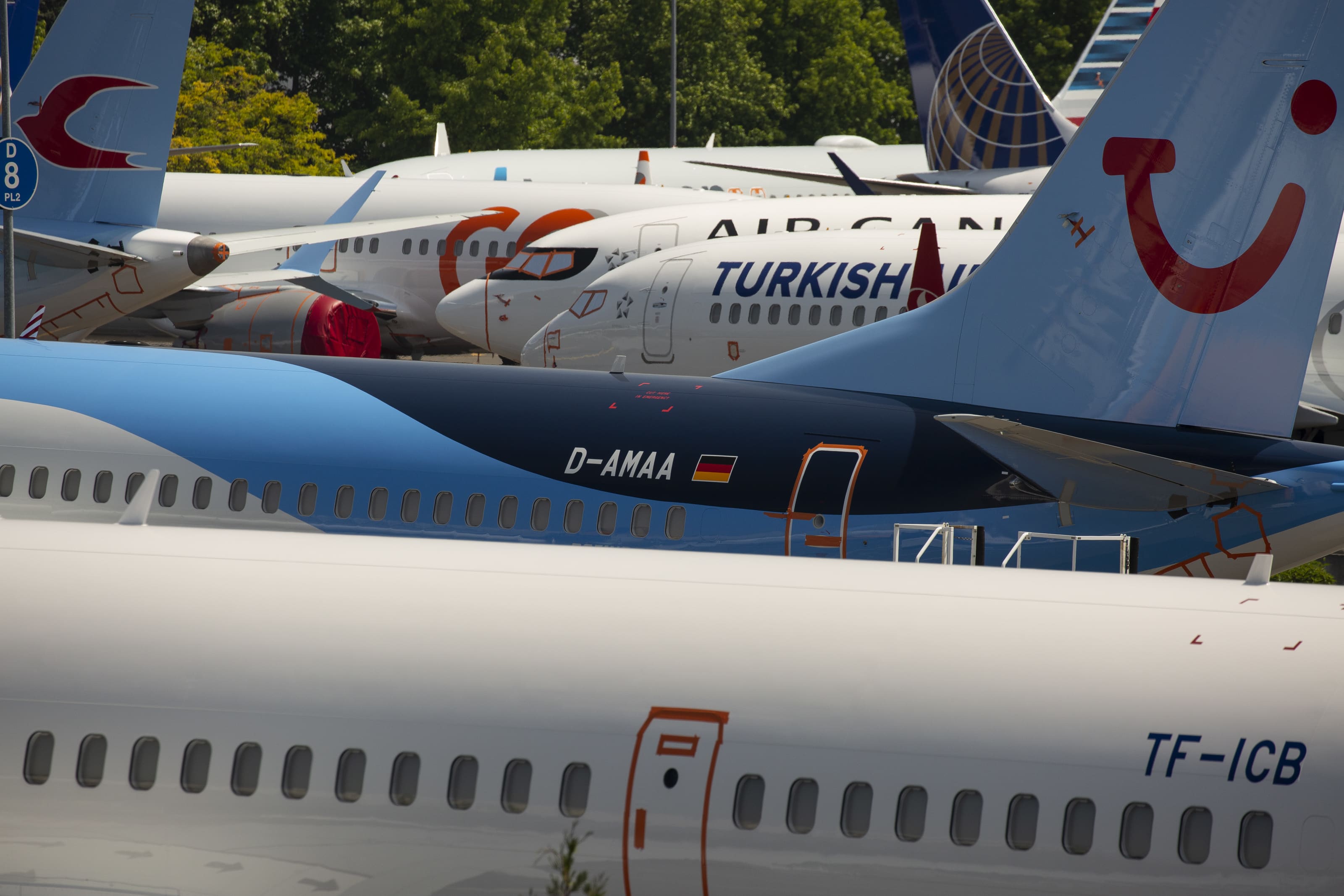U.S. aviation regulators won't likely clear Boeing's troubled 737 Max airplanes for flight until some time in 2020, Federal Aviation Administration chief Steve Dickson told CNBC on Wednesday.
Dickson's comments squash any hope that Boeing had of getting the planes recertified before the end of the year.
"Like I said there are a number of processes, milestones, that have to be completed," Dickson told CNBC's Phil Lebeau on "Squawk Box. "If you just do the math, it's going to extend into 2020."
Boeing declined to say whether it has changed its timeline as a result of Dickson's comments.
"We continue to work closely with the FAA and global regulators towards certification and the safe return to service of the Max," the company said in a statement.
The return date of the fuel-efficient planes has repeatedly slipped. The uncertainty has been a challenge for airlines like Southwest and American, which have lost hundreds of millions of dollars in revenue with the planes out of service. U.S. airlines that fly the planes don't expect them back in service until at least early March.
Even if the FAA approves the planes, airlines will have to take mothballed planes that have been grounded since March and train thousands of Boeing 737 pilots.
Dickson said there is no clear timeline for when the 737 Max will be recertified and that there are 10 to 11 milestones left to complete before it can be approved.
"We're going to follow every step of the process, however long that takes," he told CNBC. "I've made it clear that I'm going to support my people and that means they are going to take whatever time it takes to get this process completed and to do it the right way."
Dickson added that his team is in the process of reviewing the plane's software and "the validation of how the software was developed."
The agency also started about a week ago on the maintenance requirements needed to get the planes flying again. That alone takes about a month, he said. "So again just doing the arithmetic on these processes you see that it pushes into next year," he said.
Boeing CEO Dennis Muilenburg has not made "any requests to cut corners" throughout the recertification process, Dickson said. There have been "discussions from time to time about which processes run in parallel, where the interdependencies are," Dickson said. He added that this dialogue is not counterproductive.
The FAA has been under fire for its approval of the now-grounded 737 Max. Dickson said at an industry conference in early November that the agency will work to better assess how human pilots interact with increasingly automated and complex aircraft. He also said that human factors should be considered "throughout the design process."
But Dickson stopped short of outline changes to the certification process, calling it premature to talk about it or "FAA's personnel at any level before this committee's investigation and other ongoing reviews have concluded, and we have a chance to carefully analyze their results and recommendations."
Dickson, a former Delta executive and pilot who was sworn into a five-year term as FAA administrator in August, is appearing before the House Committee on Transportation and Infrastructure on Wednesday. Lawmakers will question the FAA chief about whether the agency cut corners before it finally approved the planes to fly in 2017 and what it plans to change.
Lawmakers will also hear from a former Boeing manager, Ed Pierson, who raised safety concerns about the 737 Max production line, red flags he had also raised to regulators.
"Although Mr. Pierson did not provide specific information or detail about any particular defect or quality issue, Boeing took his concerns about 737 production disruption seriously," Boeing said in a statement. "On both occasions, company executives and senior leaders on the 737 program were made aware of Mr. Pierson's concerns, discussed them in detail, and took appropriate steps to assess them."
